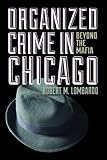Support H-Net | Buy Books Here | Help Support the NBN and NBN en Español on Patreon | Visit New Books Network en Español!
- African Studies
- African American Studies
- American Politics
- American Studies
- American South
- American West
- Asian American Studies
- Australian and New Zealand Studies
- British Studies
- Canadian Studies
- Caribbean Studies
- Central Asian Studies
- Chinese Studies
- East Asian Studies
- Eastern European Studies
- European Politics
- French Studies
- German Studies
- Iberian Studies
- India Studies
- Indian Ocean World
- Iranian Studies
- Irish Studies
- Israel Studies
- Italian Studies
- Japanese Studies
- Korean Studies
- Latino Studies
- Latin American Studies
- Mexican Studies
- Middle Eastern Studies
- Native American Studies
- Pacific Studies
- Polish Studies
- Russian and Eurasian Studies
- Southeast Asian Studies
- South Asian Studies
- Turkish Studies
- Ukrainian Studies
- Western European Studies
- World Affairs
- Animal Studies
- Anthropology
- Archaeology
- Business, Management, and Marketing
- Media
- Critical Theory
- Disability Studies
- Drugs, Addiction and Recovery
- Education
- Economics
- Finance
- Geography
- Gender Studies
- Genocide Studies
- Higher Education
- Human Rights
- Journalism
- Language
- Law
- LGBTQ+ Studies
- National Security
- Philanthropy
- Philosophy
- Policing, Incarceration, and Reform
- Political Science
- Politics & Polemics
- Public Policy
- Sex, Sexuality, and Sex Work
- Sociology
- Sound Studies
- Sports
- Urban Studies
- Big Ideas
- Celebration Studies
- Co-Authored
- Cover Story
- Historical Materialism
- History Ex Silo
- Interpretive Political and Social Science
- Invested Investor
- Landscape Architecture
- Late Antiquity
- Mormonism
- NBN Book of the Day
- NBN Seminar
- Postscript: Conversations on Politics and Political Science
- Practical History
- Preparing for Life After Grad School
- Psychology and Climate Change
- Syriac Studies
- The Chair: In The Room at the Fed
- New Books with Miranda Melcher

Jan 31, 2014
Deconstructing Organized Crime
An Historical and Theoretical Study
Summary
Joseph Albini and Jeffrey S. McIllwain, Deconstructing Organized Crime: An Historical and Theoretical Study (MacFarlane, 2012) is not, as some academics might think, a post-modern analysis of organized crime. It is however, an exercise of deconstructing by trying to look past the common assumptions and myths to explain the phenomenon we call organized crime.
The book starts with a debunking of mythology around the American Mafia and its popular history. It then moves on to define organized crime and analyse what it means to organise crime. This is often overlooked in many books on the topic. How does organization assist criminals and what types of crime can be organized? The authors also present a good analysis of the illicit market place and the difficulties of running a free market without rules. So it's a sort of Libertarians meet Hobbes making for large profits but a potentially nasty, brutish and short life. The final chapters of the book look at the nature of the marketplace in a modern globalised society.
I have read many, many books on this topic and I still found this book to be quite refreshing. It definitely meets its goal of jumping over the unanswered questions and myths and getting to the heart of organized crime. It would be an excellent text for undergraduate classes in the topic as it will sweep away the mainstream media typologies and make them think about the nature of the criminal world and its reason for existence.



































































































